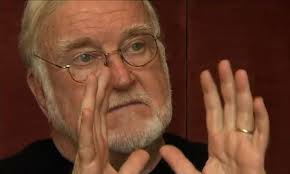During one of the recent #satchatoc discussions, led by the remarkable Andrea Stringer, a teacher, Greg Ashman, queried the assumption that student engagement should be pursued:
‘There must be some larger rationale, right? What’s the objective? I’m not saying it’s a bad idea. I used to be in charge of ‘student voice’. But I never asked why’
It’s a really good question, Greg, and one that is all too infrequently asked. By not having these reality checks we run the risk of perpetuating some of the myths around student engagement:
1. Engaging students is the teacher’s responsibility. A recent Edutopia article began ‘Keeping students captivated and ready to learn is no small task’. Captivated? I know quite a few educators who’d settle for ‘conscious’.. These kind of ‘top tips for teachers’ reinforce the notion of teacher-as-entertainer;
2. Engagement = having fun, right? Wrong. While I firmly believe that engagement precedes learning (you can’t have deep learning if you’re not focussed), it doesn’t always follow that learning will automatically follow engagement;
3. Get engagement right and students will achieve. Alfie Kohn‘s aphorism ‘when interest appears, achievement usually follows’ carries a ring of truth, but attainment, per se, shouldn’t be the driver behind a desire to enhance engagement. For one thing, our assessment systems have a narrow focus, and an engaged student will take their interests to deeper, more diverse, places than most tests can accommodate. But that’s a reflection on assessment, not engagement.
To answer Greg’s challenge, I believe we have to think beyond engagement, or it remains a classroom strategy, when it’s so much more than that. For me, the pursuit of engagement is the pursuit of depth – in relationships, in context, and of course in learning. In exam-driven systems – where students increasingly ask ‘does it count?’ (towards grades), before commencing a task – we need a counterbalance to the obsession of superficially ‘covering’ the curriculum that dominates most teaching and learning strategies.
But we also need to think beyond engagement, because our current students will have multiple jobs, and portfolio freelance careers in 10-15 years time. They’ll have to learn, unlearn and re-learn knowledge and skills in order to be employable – and they’ll have to think independently if they’re to avoid the increasing danger of automation. If your school career was largely spent in a state of disengagement or, worse, feigning engagement, you’re going to be ill-prepared for the demands of the knowledge economy. This is why great educators want their students to think like scientists, engineers, artists – being engaged is just the first, though necessary, step in being ready for the world of work.
But will an engaged class get better test scores? The evidence is unclear – a teacher who seeks engagement is unlikely to favour teaching to the test, and students delving deeply into a subject area in their spare time, might be considered time that could be spent on exam revision. But we have to think longer-term: is our job as educators simply to get our students to score well during the time they’re with us? Or do we have a responsibility for their longer-term prospects? Because here there is growing evidence that students who are engaged in learning at school (not the same as engaged in school) have better life chances than those who are disengaged, irrespective of exam results or soci0-economic background. Better jobs, more likely to complete higher education.
For me, that’s why engagement matters, but we have to think beyond engagement.
And how do we design engaging learning? I’d like to suggest that we need to think less about entertaining/captivating our students – what we do, and how we behave – and more about the ‘why?’. As an educator, I’ve never been irritated when students ask ‘why do we need to learn this?’ – being clear about the purpose is a prerequisite for engagement.
Equally, authenticity and relevance matter. Writing an essay about the holocaust will generate useful research, but interviewing a holocaust survivor will go deeper and make a personal connection. Understanding the health impact of air pollution in developing economies is important, but wouldn’t the issues be better examined if we measured pollution in our own communities? This is one of the reasons why project-based learning is often seen as a catalyst for engagement. When designed well, it can turn knowledge into authentic action.
 There are a lot more reasons why I think educators, and schools, need to prioritise engagement (and go beyond it), but perhaps the simplest is to be found in Mihaly Csikszentmihalyi‘s concept of ‘flow’. He describes how that enviable state of flow (or deep engagement) is when both the challenge, and the skills need to overcome that challenge, are greater than anticipated. A sense of clarity and focus emerges, and time disappears. Csikszentmihalyi argues that we are at our happiest, our most fulfilled, when in that state of flow.
There are a lot more reasons why I think educators, and schools, need to prioritise engagement (and go beyond it), but perhaps the simplest is to be found in Mihaly Csikszentmihalyi‘s concept of ‘flow’. He describes how that enviable state of flow (or deep engagement) is when both the challenge, and the skills need to overcome that challenge, are greater than anticipated. A sense of clarity and focus emerges, and time disappears. Csikszentmihalyi argues that we are at our happiest, our most fulfilled, when in that state of flow.
So, for me, striving to create the conditions for enhanced student engagement is as much a human right as it is an educational strategy.




‘Flow’ can be another word for mindfulness. I see it most when observing Montessori students in their ‘ big work’ phase first thing in the morning. They might stay with a task in deep engagement and they are not to be interrupted. Secondary schools in mainstream classrooms run to limited ‘periods of learning scheduled daily. These are counter- productive to ‘flow’ often, since students may settle to deep work and then have to be interrupted by the end of the lesson.
Flow. Great concept and many thanks for this. And an experience that we’ve all noted, either as learners or educators, in those episodes when the learning spills out of its allotted time frame in a manner equally joyous and purposeful.
Going to get this term in the air tomorrow at school.
Great to hear from you, Mark. It’s been too long since I came over. Hope all is well!